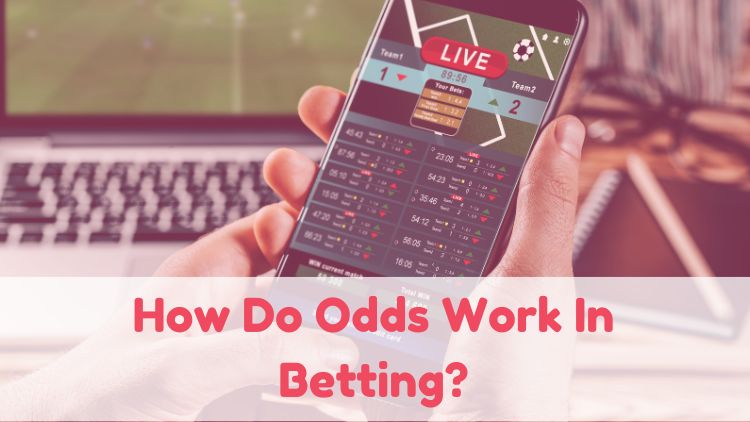
When you’re first dipping your toes into the world of betting, understanding odds can feel a bit like trying to crack a secret code. But it doesn’t have to be confusing. Odds are simply a way of showing how likely an event is to happen as well as how much you could potentially win if you bet on it and it does.
In this blog post, we’ll unravel the mystery of betting odds, helping you see them in a clearer light. Whether you're curious about what the odds can tell you or just want a bit more insight before having a flutter, we’ll guide you through the basics, step by step.
Ready to learn more? Let's dive in.
How Are Betting Odds Calculated?
Betting odds are essentially a reflection of the probability of an event happening, calculated by bookmakers to balance their books. Bookmakers consider many factors to set these odds.
The process usually starts with the analysis of historical data and statistics. If a football team has a strong track record and is playing on home turf, they might be given shorter odds to win - i.e. they are more likely to win so the payout odds offered are going to be lower to reflect this.
Next, bookmakers account for expert opinions and recent forms of participants. They keep an eye on injuries, weather conditions, and any other factors that could affect the outcome.
They also look at how the betting public is wagering. If a lot of people are backing one outcome, a bookmaker might adjust the odds to make other options more attractive to bettors in order to balance the books.
Once all this is weighed, bookmakers set the odds, which gives an indication of the likelihood of a result (though not a true reflection) and it tells you how much you could receive in winnings based on your stake if you win.
Ultimately, the goal for bookmakers is to ensure they make a profit regardless of the event outcome while still offering odds that are competitive and appealing to their customers. Remember, the odds you see aren’t just random - they’re carefully calculated to balance risk and reward.
How Do Sports Betting Odds Work?
Sports betting odds tell you how much you stand to win if your bet is successful. They also reflect the likelihood of a particular outcome occurring. Odds can be displayed in different formats, such as fractional (e.g. 2/1), decimal (e.g. 3.0), or American. Each one conveys the same information, just in a different way.
Fractional odds are the most common in the UK. For example, if the odds are 2/1 for an outcome, it means that for every £1 you bet, you could win £2 if the bet is successful, plus you get your original stake back. So, if you bet £5 on this outcome, you stand to win £10, plus you get to keep your original £5 bet.
Decimal odds show the total payout, including the returned stake, rather than just the potential winnings. For example, odds of 3.0 mean if you bet £1, you'd get £3 in return if you win, which includes your stake.
How Do Odds Work In Football?
In football betting, odds are calculated based on various factors like team form, player injuries, and head-to-head stats.
Market favourites like "Match Result" or "Both Teams To Score" are popular. In "Match Result", odds indicate the likelihood of a team winning or the match ending in a draw.
With football, the odds can fluctuate based on new information or the amount of money people are betting on an outcome. These factors are why odds can change, sometimes even as the match is being played.
How Do Odds Work In Horse Racing?
Horse racing odds work similarly, but they often reflect information such as the horse’s past performance, the jockey's skill, and track conditions.
Odds in horse racing are usually fractional. They indicate the potential payout if the bet wins. For instance, odds of 5/1 would mean a £1 bet returns £5 in profit, and you get your stake back on top of this if the horse wins.
In horse racing, odds can change quickly, especially as the race start time nears. This is because odds are sometimes adjusted to reflect the amount of money wagered on each horse, balancing the bookmaker's books.
Remember to always gamble responsibly and to set realistic expectations; anything can happen on the day of the event, so winning is never a sure thing.
**The information provided in this blog is intended for educational purposes and should not be construed as betting advice or a guarantee of success. Always gamble responsibly.
